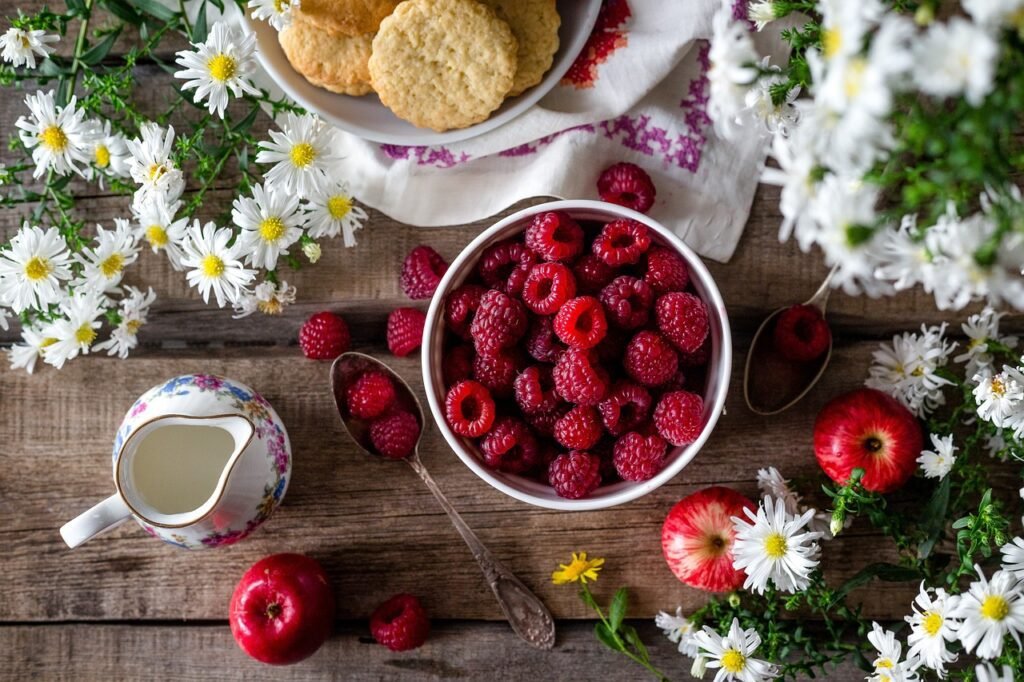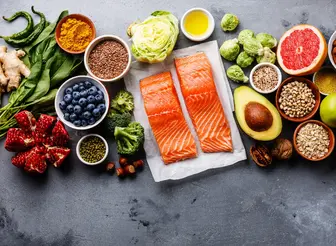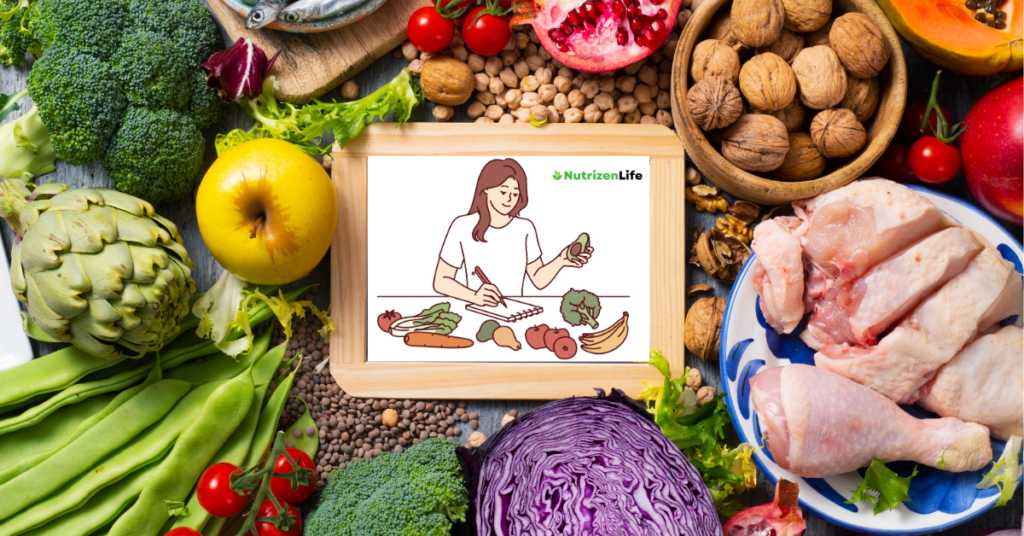As we advance in years, Best Anti Aging Food, modifications are noted in our bodies and most of them are relative to the diet that we take. Aging gracefully is not simply about strict moderation of particular edibles; it is about eating those that catalyse the natural processes of the body. A specific blend of nutrients is bound to reduce any age-related ailments, enhance skin quality, improve cognitive abilities, and strengthen the heart – in other words, nutritional aging is beneficial in this regard. In this comprehensive nutrition guide, we will identify the best dietary choices you can make to promote healthy aging, supported with nutritional facts and contemporary scientific evidence.
The Science of Healthy Aging
Understanding the Aging Process
Aging is a natural biological process influenced by genetics, lifestyle, and environmental factors. Key factors that drive aging include oxidative stress, inflammation, and the body’s ability to repair cells and tissues. As we age, our cells accumulate damage from free radicals—unstable molecules that cause oxidative stress. This damage accelerates aging and contributes to age-related diseases like Alzheimer’s, heart disease, and cancer [1].
How Nutrition Impacts Aging
- Nutrition plays a pivotal role in mitigating the effects of aging. Antioxidants neutralize free radicals, reducing oxidative stress and preventing cellular damage. Omega-3 fatty acids and anti-inflammatory compounds help combat chronic inflammation, a major contributor to aging. Additionally, adequate intake of vitamins and minerals supports cellular repair and regeneration, maintaining youthful vitality and preventing the decline in bodily functions [2].

Key Nutrients for Aging Well
Some of the most important nutrients for healthy aging include:
- Antioxidants: Protect the body from oxidative stress (e.g., vitamin C, E, flavonoids) [3].
- Omega-3 Fatty Acids: Help reduce inflammation and support heart and brain health [4].
- Fiber: Aids digestion and supports heart health [5].
- Vitamins and Minerals: Essential for immune function, skin health, and bone strength (e.g., vitamin D, calcium, magnesium) [6].
Incorporating these nutrients into your diet can significantly slow down the aging process and enhance overall health.
Best anti aging food for Healthy Skin, Hair, and FoodsThat Promote Collagen
Collagen is a protein that gives skin its elasticity and structure. As we age, collagen production decreases, leading to wrinkles and sagging skin. It is Best anti aging food. This foods can boost collagen production:
- Citrus Fruits (e.g., oranges, lemons, grapefruits): Rich in vitamin C, which is essential for collagen synthesis [6].
- Tomatoes: High in lycopene, an antioxidant that helps protect the skin from sun damage and promotes collagen production [7].
Antioxidant-Rich Foods for Skin Health
Antioxidants protect your skin from free radical damage, keeping it youthful and vibrant. Some of the best foods for skin health include:
- Berries (e.g., blueberries, strawberries, raspberries): Packed with antioxidants like anthocyanins, which help fight signs of aging [8].
- Dark Chocolate: Rich in flavonoids, which protect the skin from UV damage and boost hydration [9].
Healthy Fats for Skin Hydration
Healthy fats are crucial for maintaining skin hydration and elasticity. Omega-3 fatty acids, in particular, play a key role in skin health:
- Avocados: Full of monounsaturated fats that help keep the skin hydrated and smooth [10].
- Fatty Fish (e.g., salmon, mackerel, sardines): Rich in omega-3 fatty acids that help reduce inflammation and keep skin youthful [11].
Additional Tips for Skin Health
- Stay Hydrated: Drinking plenty of water helps maintain skin moisture and elasticity.
- Limit Sugar Intake: Excessive sugar can lead to glycation, which damages collagen and elastin fibers, accelerating skin aging.
Brain Health and Cognitive Function
Foods That Fight Cognitive Decline
The brain is one of the most affected organs as we age. Nutrients that protect against cognitive decline can be found in foods rich in omega-3 fatty acids and antioxidants:
- Fatty Fish: Rich in omega-3s, which are crucial for maintaining brain function and preventing cognitive decline [12].
- Walnuts: High in antioxidants and alpha-linolenic acid (ALA), a plant-based omega-3 fatty acid that supports brain health [4].
Supporting Memory and Mental Clarity
Certain foods are specifically beneficial for enhancing memory and mental clarity:
- Leafy Greens (e.g., spinach, kale): Packed with folate, vitamin K, and lutein, which are associated with better cognitive function [6].
- Blueberries: Rich in anthocyanins, which improve memory and delay brain aging [8].
Gut-Brain Connection
Research has shown that gut health directly impacts brain health. A balanced gut microbiome can improve mood, reduce anxiety, and enhance cognitive function:
- Probiotic-Rich Foods (e.g., yogurt, kefir, kimchi): These foods help support a healthy gut microbiome, which can improve mental clarity and emotional well-being [2].
Lifestyle Tips for Brain Health
- Regular Mental Stimulation: Engage in activities that challenge your brain, such as puzzles, reading, or learning a new skill.
- Adequate Sleep: Quality sleep is essential for memory consolidation and overall brain health.

Heart Health and Longevity
Cardioprotective Foods
Maintaining heart health is one of the most critical factors for longevity. These foods support cardiovascular health:
- Olive Oil: A staple in the Mediterranean diet, olive oil is rich in monounsaturated fats and antioxidants that protect the heart [2].
- Nuts (e.g., almonds, walnuts): Full of healthy fats, fiber, and antioxidants that help reduce the risk of heart disease [5].
Reducing Inflammation and Blood Pressure
Chronic inflammation and high blood pressure contribute significantly to heart disease. These foods help lower inflammation and regulate blood pressure:
- Garlic: Known for its ability to reduce blood pressure and fight inflammation [12].
- Beets: High in nitrates, which help lower blood pressure and improve blood flow [5].
The Role of Fiber
A fiber-rich diet is essential for heart health, as fiber helps lower cholesterol and maintain a healthy weight:
- Oats: Contain beta-glucans, a type of soluble fiber that helps lower cholesterol [5].
- Flaxseeds: Packed with omega-3s and fiber, which support heart health [4].
Additional Heart-Healthy Tips
- Limit Saturated and Trans Fats: Reduce intake of red meat and processed foods to lower cholesterol levels.
- Stay Active: Regular physical activity strengthens the heart and improves circulation.
Anti-Aging Foods for Bone and Joint Health
Foods to Strengthen Bones
As we age, maintaining bone density becomes crucial. These foods can help keep your bones strong:
- Leafy Greens (e.g., kale, collard greens): Rich in calcium, which is essential for bone strength [10].
- Fortified Plant Milks (e.g., almond, soy): Often fortified with calcium and vitamin D to support bone health [6].
Joint Health and Mobility
Nutrients that support joint health can prevent or reduce pain and stiffness:
- Turmeric: Contains curcumin, which has anti-inflammatory properties that help reduce joint pain [12].
- Ginger: Known for its ability to reduce inflammation and support joint mobility [12].
Additional Tips for Bone and Joint Health
- Regular Exercise: Weight-bearing exercises like walking, jogging, and strength training help maintain bone density.
- Adequate Vitamin D: Ensures proper calcium absorption, crucial for bone health.
Immune System Support: Staying Strong as You Age
Boosting Immunity with Diet
A strong immune system is essential for healthy aging. Certain foods can help maintain immune function:
- Citrus Fruits: High in vitamin C, which is essential for immune health [6].
- Garlic: Known for its immune-boosting properties [12].
The Role of Probiotics
A healthy gut microbiome is closely linked to a strong immune system. These foods support gut health and immunity:
- Yogurt: Rich in probiotics that help maintain a healthy gut [2].
- Kefir: A fermented dairy drink that supports gut health and immunity [2].
Additional Immune-Boosting Tips
- Adequate Sleep: Supports the immune system’s ability to function effectively.
- Regular Exercise: Enhances immune surveillance and reduces inflammation.
Anti-Aging Diet Habits: How to Build Your Daily Meals
Balanced Diet for Longevity
Building a diet that promotes healthy aging isn’t about restriction—it’s about balance. Aim to include a variety of nutrient-dense foods, such as:
- Fruits and Vegetables: Rich in antioxidants, vitamins, and minerals [1].
- Whole Grains: Provide fiber and essential nutrients that support heart health [2].
- Healthy Fats: Include sources like olive oil, avocados, and fatty fish [4].
Meal Prep Tips for Healthy Aging
- Prepare Meals Ahead of Time: Ensure you always have healthy options available by prepping meals in advance [2].
- Include a Variety of Colorful Vegetables, Lean Proteins, and Healthy Fats: Diversity in your diet ensures a broad spectrum of nutrients [1].
Foods to Avoid for Optimal Aging
Avoid foods that promote inflammation and accelerate aging:
- Processed Foods: Often high in trans fats, sugar, and additives that promote inflammation [5].
- Excessive Sugar: Contributes to wrinkles and may increase the risk of chronic diseases [3].
Additional Diet Tips
- Moderation is Key: Enjoy a wide variety of foods in appropriate portions to maintain a balanced diet.
- Mindful Eating: Pay attention to hunger and fullness cues to avoid overeating and promote digestive health
The Role of Hydration in Healthy Aging
Importance of Water
Hydration is crucial for maintaining youthful skin, preventing cognitive decline, and supporting digestion. Adequate water intake ensures that your body functions optimally, facilitating nutrient transport, waste removal, and temperature regulation [1].
Best Hydrating Foods
Water-rich foods help keep you hydrated and nourish your skin:
- Cucumbers: High in water content and low in calories [2].
- Watermelon: Another hydrating fruit, rich in antioxidants like lycopene [3].
- Celery: Contains a high percentage of water and essential vitamins [2].
Additional Hydration Tips
- Carry a Water Bottle: Keep a reusable water bottle with you to remind yourself to drink throughout the day.
- Limit Caffeine and Alcohol: These can have diuretic effects, leading to dehydration.
Lifestyle Habits to Complement Your Anti-Aging Diet
Exercise and Aging
Regular physical activity helps keep the body strong, supports metabolism, and boosts mood. Exercise enhances muscle mass, improves bone density, and promotes cardiovascular health, all of which are essential for healthy aging [4]. Incorporate a mix of aerobic exercises, strength training, and flexibility routines to achieve comprehensive health benefits.
Stress Management and Sleep
Chronic stress and poor sleep can accelerate aging. Prioritize relaxation techniques such as meditation, yoga, or deep-breathing exercises to manage stress effectively. Aim for 7-8 hours of quality sleep each night to allow your body to repair and regenerate [5]. Good sleep hygiene practices, such as maintaining a regular sleep schedule and creating a restful environment, can significantly improve sleep quality.
The Power of Positivity and Mental Well-Being
A positive mindset and strong social connections are linked to healthier aging. Engaging in meaningful relationships, pursuing hobbies, and maintaining an optimistic outlook can enhance mental well-being and resilience against age-related challenges [6]. Social interactions stimulate the brain, reduce stress, and provide emotional support, all of which contribute to a higher quality of life.
Additional Lifestyle Tips
- Continuous Learning: Keep your mind active by learning new skills or engaging in intellectually stimulating activities.
- Avoid Smoking and Limit Alcohol: These habits can accelerate aging and increase the risk of chronic diseases.
FAQ
What is the most powerful anti-aging food?
One of the most powerful anti-aging foods is blueberries. They’re rich in antioxidants, particularly anthocyanins, which help protect the body from oxidative stress and reduce inflammation, both of which contribute to aging.
What foods make you look younger?
Berries – Packed with antioxidants.
Avocados – Rich in healthy fats for skin hydration.
Nuts – High in vitamin E for skin protection.
Leafy greens – Loaded with vitamins and minerals.
Tomatoes – High in lycopene for skin protection from UV damage.
Which food is best for anti-aging skin?
The best food for anti-aging skin is salmon. It’s rich in omega-3 fatty acids, which help keep the skin hydrated, reduce inflammation, and protect against wrinkles.
How can I look 10 years younger naturally?
Stay hydrated – Drink plenty of water for glowing skin.
Eat antioxidant-rich foods – Like berries, leafy greens, and nuts.
Get enough sleep – Aim for 7-9 hours for skin regeneration.
Exercise regularly – Boosts circulation and skin health.
Use sunscreen – Protect your skin from UV damage.
Moisturize – Keep skin hydrated and prevent wrinkles.
Conclusion
By incorporating these nutrient-dense foods into your daily meals, you can significantly support your body’s simple home remedies the aging process. From boosting skin elasticity and brain function to strengthening your heart and bones, the foods you eat play a crucial role in maintaining health and vitality as you age. Remember, a balanced diet with these superfoods, along with regular exercise and proper hydration, is your best strategy for healthy aging. Embrace these dietary changes and holistic practices to enjoy a longer, healthier, and more vibrant life.


